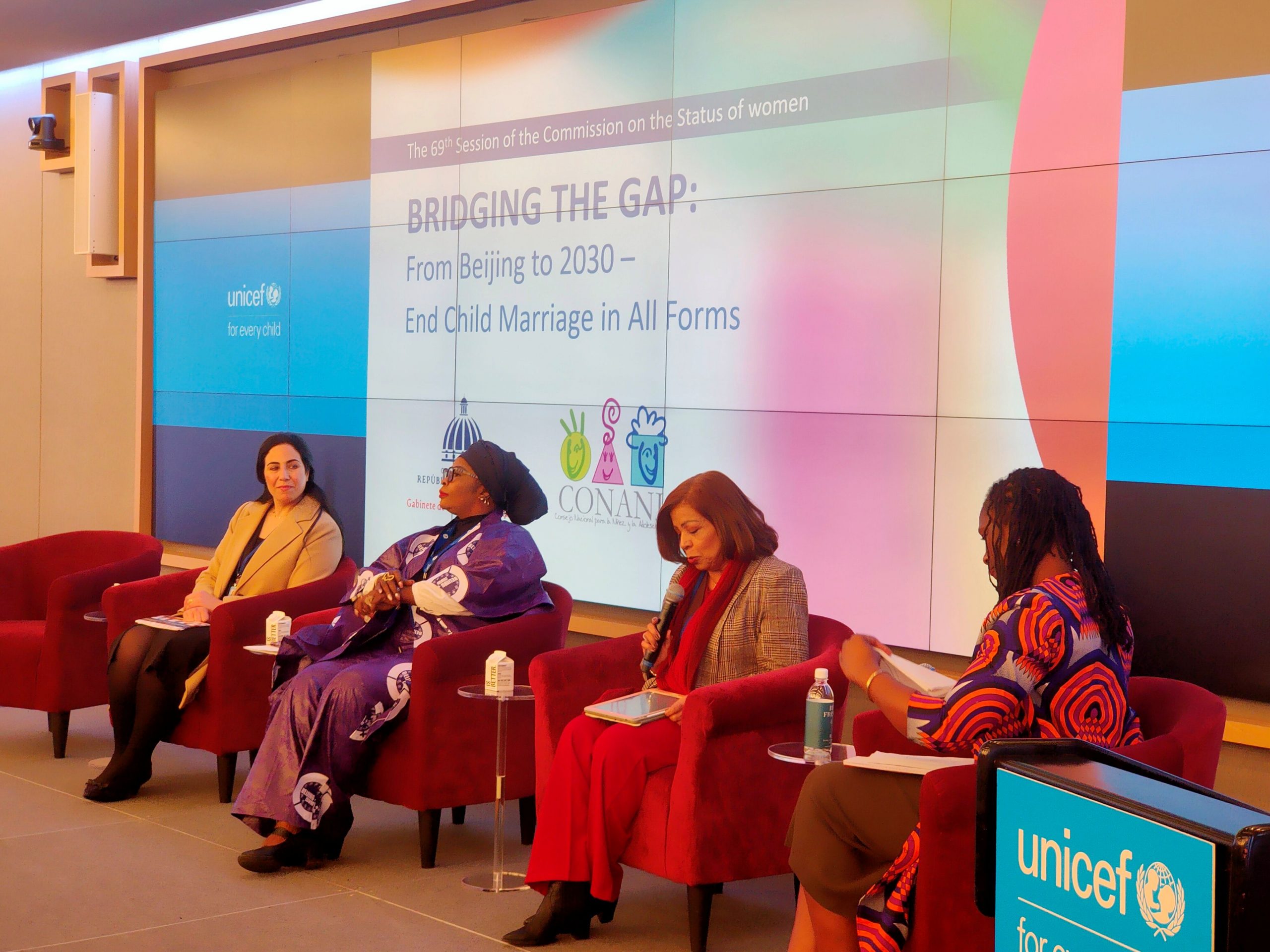12 million girls are married every year. That’s approximately 33,000 girls married every day. At the high-level side event “Bridging the Gap: From Beijing to 2030 – Ending Child Marriage in All Forms“, speakers emphasized the critical role of religious actors in the fight to end child marriage.
Religious leaders have so much power in our communities, whether formal or informal.
Nagwa Botros from Faith to Action Network
Noting that people follow their guidance. She shared examples from Egypt, where Al Azhar University issued a fatwas – a religious advisory opinion – stating that Islam supports women’s rights and condemns child marriage as harmful to girls’ health and well-being. Hon. Isata Mahoi, Minister of Gender and Children’s Affairs in Sierra Leone, echoed this sentiment, underscoring the importance of engaging religious leaders who preach in mosques and churches, making it clear that giving girls in marriage is not acceptable. She emphasized a collaborative approach: “We cannot do it alone,” calling for joint efforts across sectors. Botros further emphasized integrating religious teachings, including Quranic verses, hadiths, and biblical references, into community-based education programs.
Jean Sendeza Malawi’s Minister of Gender reinforced the impact of traditional leaders in law enforcement at the grassroots, while Fanta Touré-Puri and Botros both noted the cultural influence of faith actors and the importance of shifting conversations without attacking beliefs. Princess Mabel van Oranje emphasized joining hands to end child marriage.
We need civil society, traditional leaders, all to work together and all look at what can we bring uniquely to this effort
Faith Mwangi-Powell concluded, “Come, let’s do this together.”
Hosted by: Canada, United Kingdom, Global Programme to End Child Marriage (UNICEF, UNFPA), Children’s Investment Fund Foundation (CIFF), Girls Not Brides (GNB) Co-sponsors: Zambia, Dominican Republic, Girls First Fund (GFF), Zonta International. Faith to Action Network was a panellist



